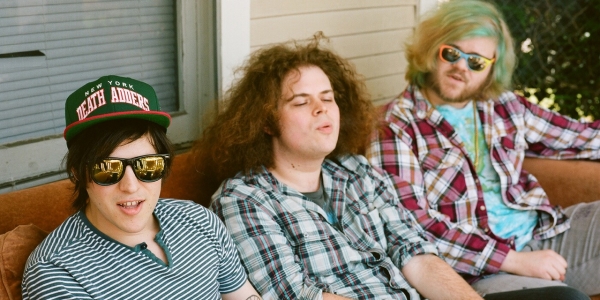“Because I write political songs and few people do, that becomes my USP,” Bragg says. “Although I don’t mind being labelled a political songwriter, I’m in danger of being dismissed as a political songwriter.”
Bragg’s preference to get his political songs out there quickly in recent years has influenced what he had left over when it came time to record Tooth And Nail.
“My last release before this album was a song called Never Buy The Sun, about the phone-hacking scandal. If I’d waited until next month to get that out, it would’ve been a real shame. I wrote it on the Friday of the week the story broke, then I recorded it and it was up for free download by Wednesday. But that means when I make a new record, I’m bound to have more personal songs than political songs,” he says.
With evocative lyrics, haunting melodies, and a beautiful warm sound, Tooth And Nail is a brilliant achievement that stands up against Bragg’s best work. It also feels like the belated natural follow-up to 1998’s Mermaid Avenue, on which Billy collaborated with Wilco to put music to the lyrics of folk icon Woody Guthrie. Bragg had good reasons for not continuing the Mermaid Avenue vibe back then, but he’s excited that things have come full circle 15 years later.
“I made an album called England, Half English that tried to address the rise of the far right in my country,” he says. “It was the album after Mermaid Avenue and the Americans didn’t get it, but I couldn’t make any other record. That’s kind of what stopped me from following up Mermaid Avenue. Now I’ve found my way back to the pathway that working with Woody and Wilco opened up.”
Bragg has been closely connected with the legacy of Woody Guthrie since recording Mermaid Avenue, and last year took his songs on the road to celebrate his 100th birthday. This connection has heavily influenced his own approach.
“Woody made me realise how important tunes are in engaging people with what you’re saying. When people write a protest song, they spend all their time on the protest. You should get a great song with a huge hook, and people will engage with what you’re talking about. Also, Woody never wrote a cynical song in his life.
“Perhaps the most important way that it influenced me was working in the studio with Wilco. I’d never worked like that before, and I’ve never not worked like that since,” he says.
What Billy learned during the Mermaid Avenue collaboration fed into the Tooth And Nail sessions. The album was recorded in five days with producer Joe Henry, in his basement in South Pasadena, California. Billy wasn’t initially confident of success in their small recording window.
“The idea that I could make a recording in five days took me a while to get my head around. I guess I wasn’t confident enough. But I felt like rolling the dice, so I put my money up and didn’t tell anyone I was making a record. I could’ve come back with the most expensive demos I’ve ever made, or the foundations of a record. I thought the least likely scenario would be a complete record that sounded amazing. But by Wednesday we’d recorded ten tracks, so I thought if I got my arse in gear and wrote a couple more, I’d have a whole album.
“I was amazed when the songs came through the speakers, because I more or less sang as the track went down and we used that take. I just trusted Joe. It was a huge relief and a huge confidence builder, just to be the guy who’s got to sing and play.”
Excluding the Mermaid Avenue releases, Tooth And Nail is just Billy’s fourth album of new material in 22 years. He doesn’t feel the same call to record albums regularly, but he knows he has a loyal fanbase to support his work.
“People aren’t gagging for the next Billy Bragg record, and when I say people I don’t just mean the general public. Record companies aren’t. The only person who is putting any pressure on me to make a new record is my partner. The response to Tooth And Nail and the last Australian tour proves that if I commit to doing it, there is still an audience out there that’s interested in what I’m doing. It’s just a matter of self-motivation.”
BY CAMERON SUNDBLOM







